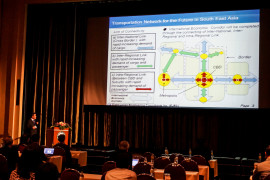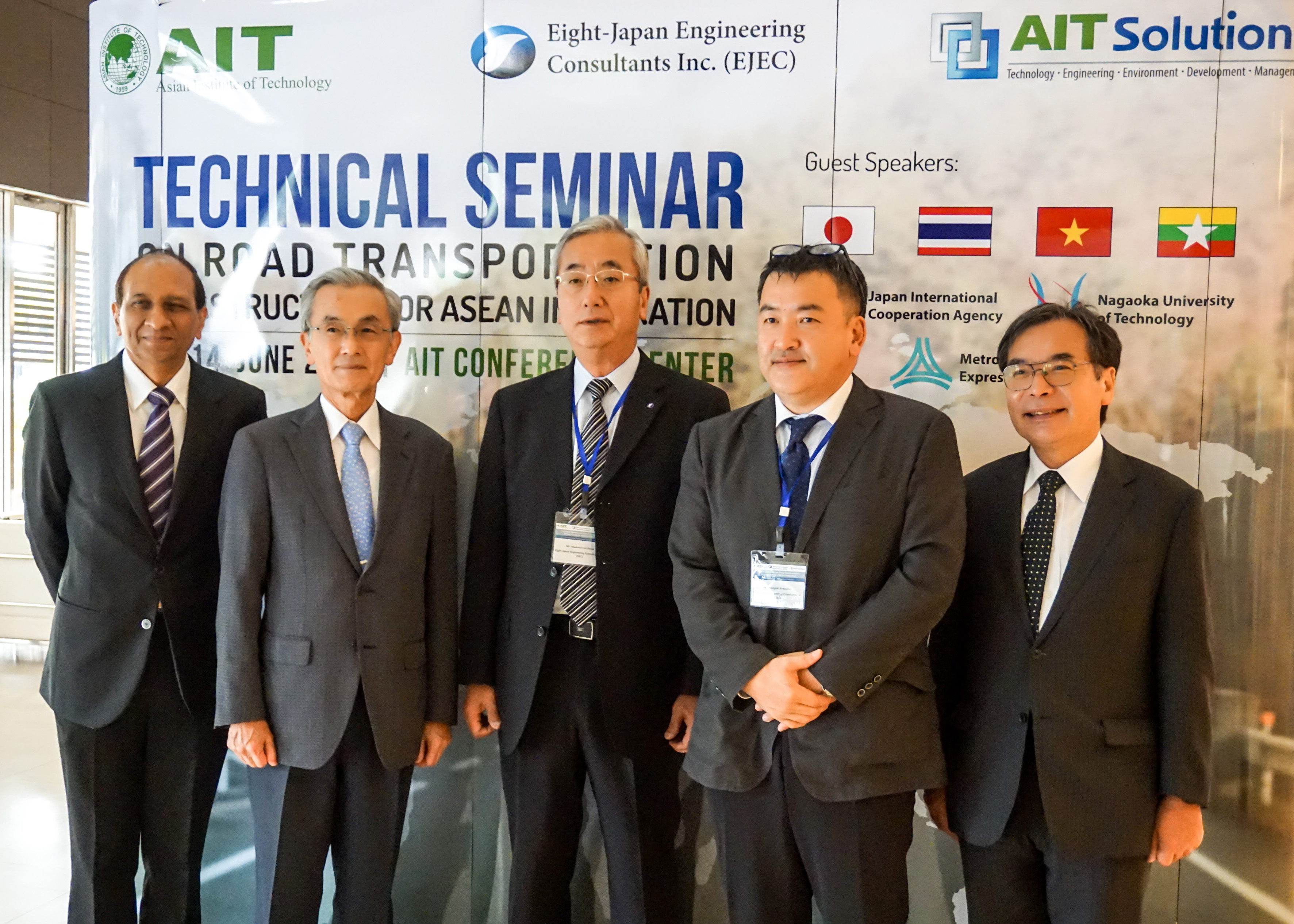
15 June 2016, Thailand
The Asian Institute of Technology (AIT) and Eight-Japan Engineering Consultants Inc. (EJEC) collaborated on a technical seminar exploring the current state of infrastructure development in ASEAN held from 13-14 June 2016 at the AIT Conference Center.
A total of 82 participants including over 11 experts from EJEC and 9 experts from ASEAN member countries attended and presented at the seminar. Expert presentations from AIT and lessons learned were shared by representatives from Vietnam, Cambodia, Nepal, Lao PDR, and Indonesia. The guests included relevant authorities from the national Ministries of Road, Transport, and Infrastructure from the above countries as well.
The first day of the seminar highlighted the future trends expected to emerge from the region and the challenges faced by member countries in regards to transport infrastructure with participants sharing their experiences. The second day of the seminar focused on in depth case studies examining tunnel construction, bridge construction, good practices and valuable lessons gained from this.
In his introduction, Dr. Naveed Anwar, Executive Director, AIT Solutions noted the flourishing two-year association between EJEC and AIT, and reiterated AIT’s support for EJEC’s operations. Following his remarks, EJEC Vice President, Mr. Yasukazu Furukawa, expressed EJEC’s determination to continue contributing to the connectivity and resilience of road infrastructure development in ASEAN similarly to the successfully completed projects EJEC has led in Africa and Asia. He also expressed his appreciation for the support and expertise that AIT provides EJEC on its many endeavors. The objective of the two organizations is aimed at forging a regional partnership to support and accelerate the process of ASEAN integration in a sustainable approach.
A key point highlighted during the two-day seminar was the smart-use of infrastructure and adopting disaster-resilient techniques and establishing a maintenance cycle for infrastructures. Mr. Takashi Kobayashi, Embassy of Japan, Thailand outlined this point in his presentation and shared successful examples of Japanese projects which represent environmentally friendly and resilient infrastructures such as the “Shinkansen” high-speed train and the Dejima Bridge in Nagasaki City which has been maintained for 105 years.

From left: Dr. Naveed Anwar, Mr. Moriyasu Furuki, Mr. Yasukazu Furukawa, Mr. Atsuyuki Nakaseko and Prof. Mitsutaka Sugimoto
More details of the seminar: Photos | Presentation
For more information, please visit: www.rtiaiseminar.solutions.ait.asia/

